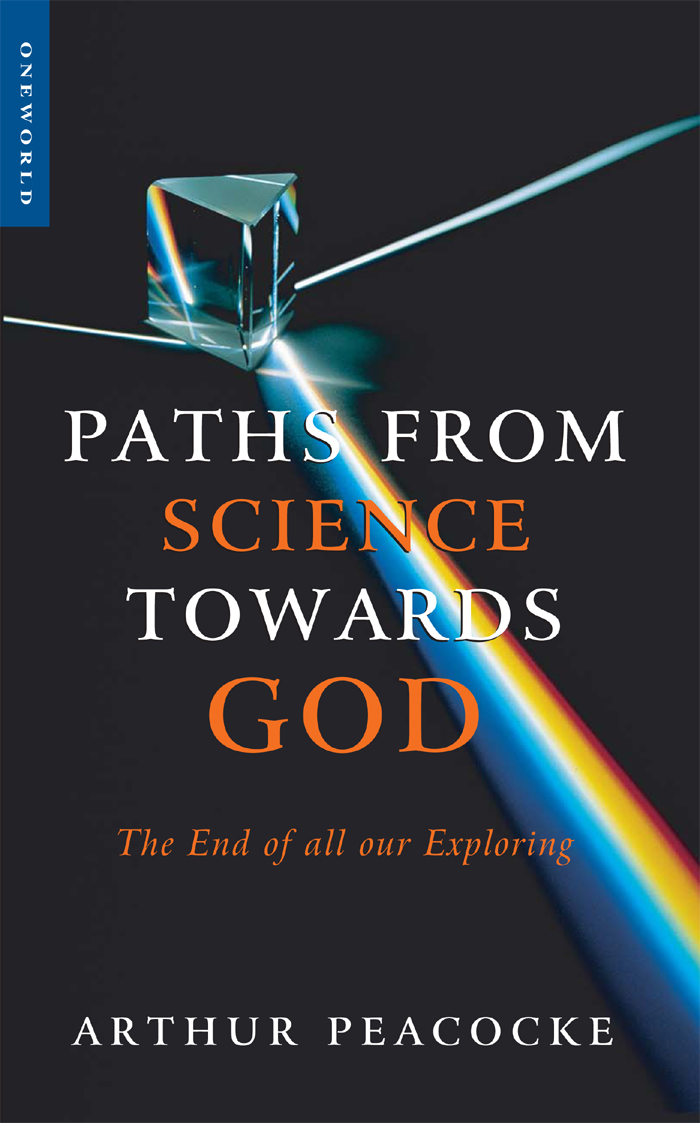
Paths from Science Towards God
The End of all Our Exploring
کتاب های مرتبط
- اطلاعات
- نقد و بررسی
- دیدگاه کاربران
نقد و بررسی

October 1, 2001
After four decades of leadership in science-and-religion dialogues, biochemist/theologian Peacocke expresses and embodies a deep weariness with bridge-building between science and religion. Peacocke's rhetorical powers shine undiminished, but this volume is not among his best works. Evocative imagery is insufficient to enliven the dated atmosphere of the book, in which Peacocke advocates for a "radical" and "global" theology while defending quasi-reactionary views of scientific progress. Concerned with the problem of God's action in the world, Peacocke labors to rehabilitate a concept of providence, without introducing God into the causal story of particular events a familiar notion of divine intervention that Peacocke deems inconsistent with science. Instead, he proposes a "whole-part influence" in which God's action trickles down through the entire universe (itself seen as part of God's being) to individual phenomena, yet without any interruption of the natural order. Peacocke's sketchy explanation will leave readers struggling, as well as skeptical about whether his alternative is as scientifically licit or theologically satisfying as he claims. Similar problems accompany his heavy reliance on the method of "inference to the best explanation" to establish theological principles as "public truth" to the extent that dogmatic claims based on divine revelation or religious tradition are discarded as outdated and unnecessary. Nonbelievers will likely be unimpressed with Peacocke's inferences about God's existence and attributes, and many believers will be puzzled by his dismissal of what many regard as the foundations of faith.

Starred review from December 1, 2001
A former biochemist and an Anglican priest, Peacocke won the 2001 Templeton Prize for Progress in Religion. He is without a doubt the most significant voice on science and religion in the English-speaking world. With this intellectually compelling and readable work, he greatly adds to the dialog. "We are stardust," he announces. "Every carbon atom in our bodies, every iron atom in our blood's hemoglobin was made in stars and scattered by supernovae explosions before the earth existed as a planet." The complexity and contingency of all that has come to be, particularly the human, lead Peacocke to posit a creator who is not the master designer. Creation is the result of chance and law; within the process of creation, God (who is the ultimate ground of chance and of law) is an improviser of unsurpassed ingenuity. For Peacocke, our creator-God is not blissfully apart from the world but intimately involved in it, enduring the evils of nature and of humankind along with us. God communicates with humans through the constituents of the world by imparting meaning and significance to particular patterns of events. In view of this, Peacocke argues that theology must not retreat into fortresses of biblicism or traditionalism but must understand its task to develop concepts, images, and metaphors that represent God's purposes and implanted meanings for the world, which we are still discovering through the sciences. Highly recommended for all seminary and academic libraries as well as larger public libraries. David I. Fulton, Coll. of St. Elizabeth, Morristown, NJ
Copyright 2001 Library Journal, LLC Used with permission.

October 1, 2001
As a distinguished biochemist who serves as a priest in the Church of England, Peacocke defies the stereotype of the scientist as unbeliever. Indeed, in the current cultural ferment, Peacocke sees the opening for a bold new synthesis of science and religion. Only through such a new synthesis, he asserts, can Christianity regain the plausibility it has lost through centuries of futile resistance to scientific progress. It is to the intellectual leaders (clergy and laity) of the faith that Peacocke addresses himself. The language (" ontological gap," " eschaton," " dipolarity") and the dense reasoning may leave the average worshiper in the pew without a prayer. Even among the cognoscenti, Peacocke's open theology will provoke some resistance, since it imposes radical limitations on God's omniscience and undercuts the authority of both Scripture and ecclesiastical tradition. But among the liberally minded, Peacocke's work will be hailed as a theological breakthrough offering a genuine faith for our times. Sure to be much debated among those with a serious interest in religion and science.(Reprinted with permission of Booklist, copyright 2001, American Library Association.)

























دیدگاه کاربران